
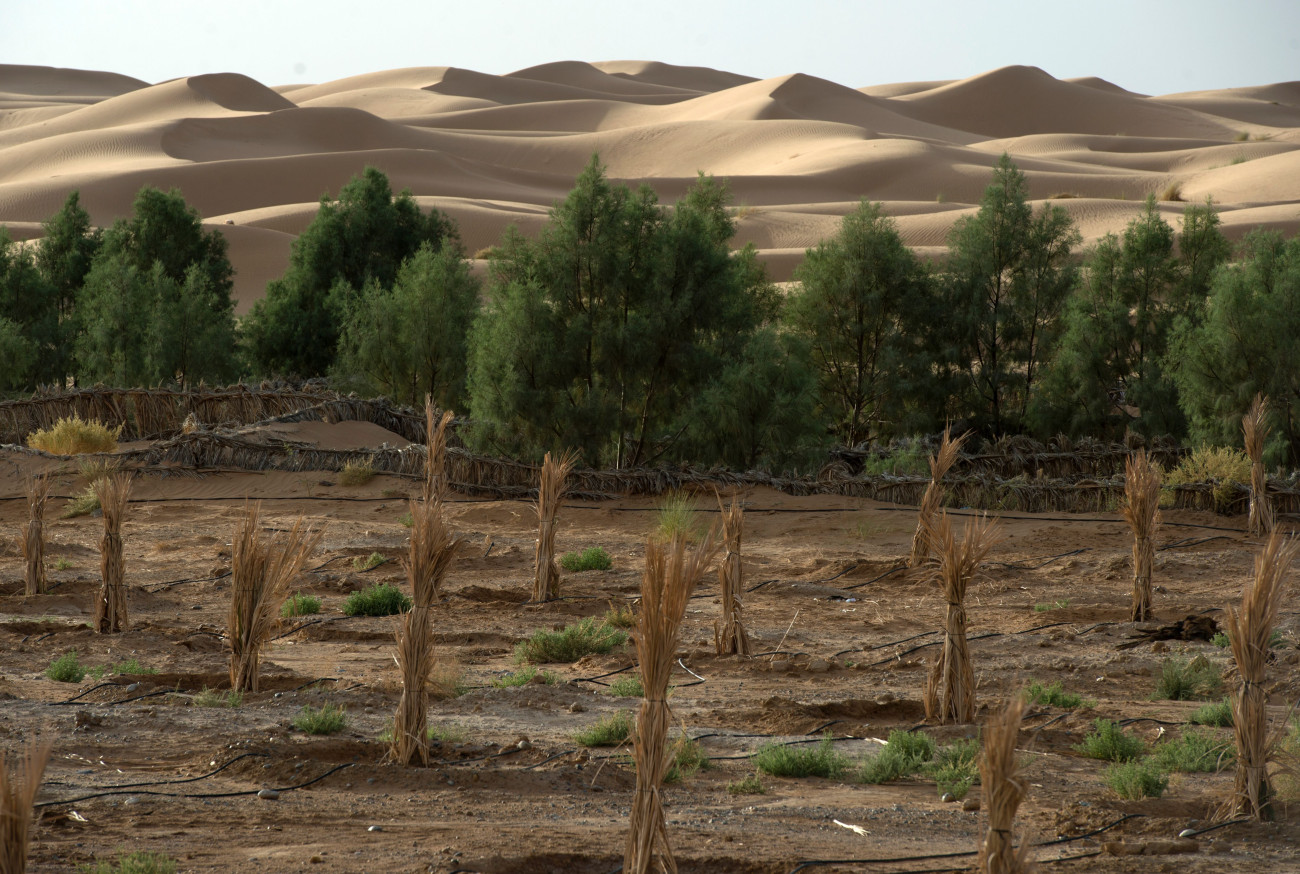
About the Project
MEI’s research initiative on food security, governance, and stability in North Africa and the Sahel explores the interconnections between local realities and global dynamics. The project, led by MEI Senior Fellow Intissar Fakir, convenes a diverse range of regional and international experts to examine how political, economic, and environmental challenges intersect across the region. Through a series of meetings, publications, multimedia, and a capstone report, the initiative aims to inform policy and promote inclusive, sustainable development.
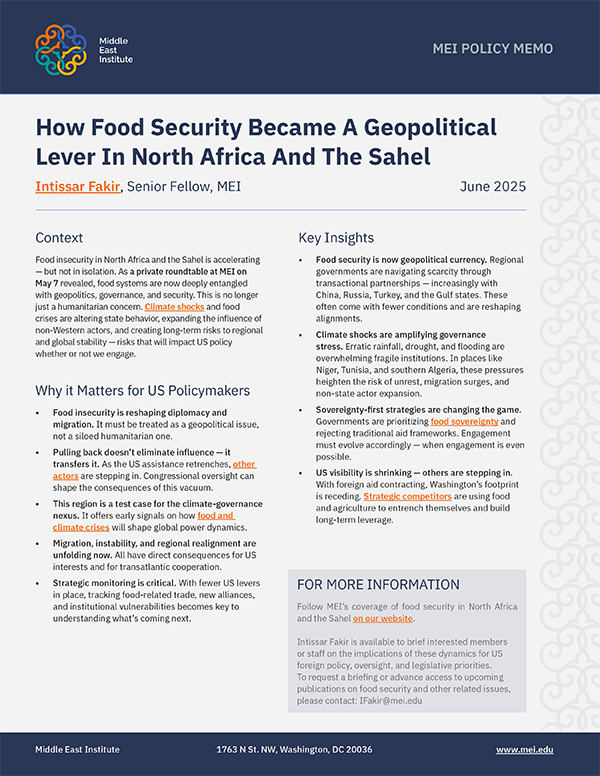
Fast Insights
Climate shocks and food crises are reshaping diplomacy, migration, and power dynamics across North Africa and the Sahel. This MEI policy memo by Intissar Fakir examines how food insecurity has become geopolitical currency—and why U.S. policymakers must treat it as a strategic issue, not just a humanitarian one.
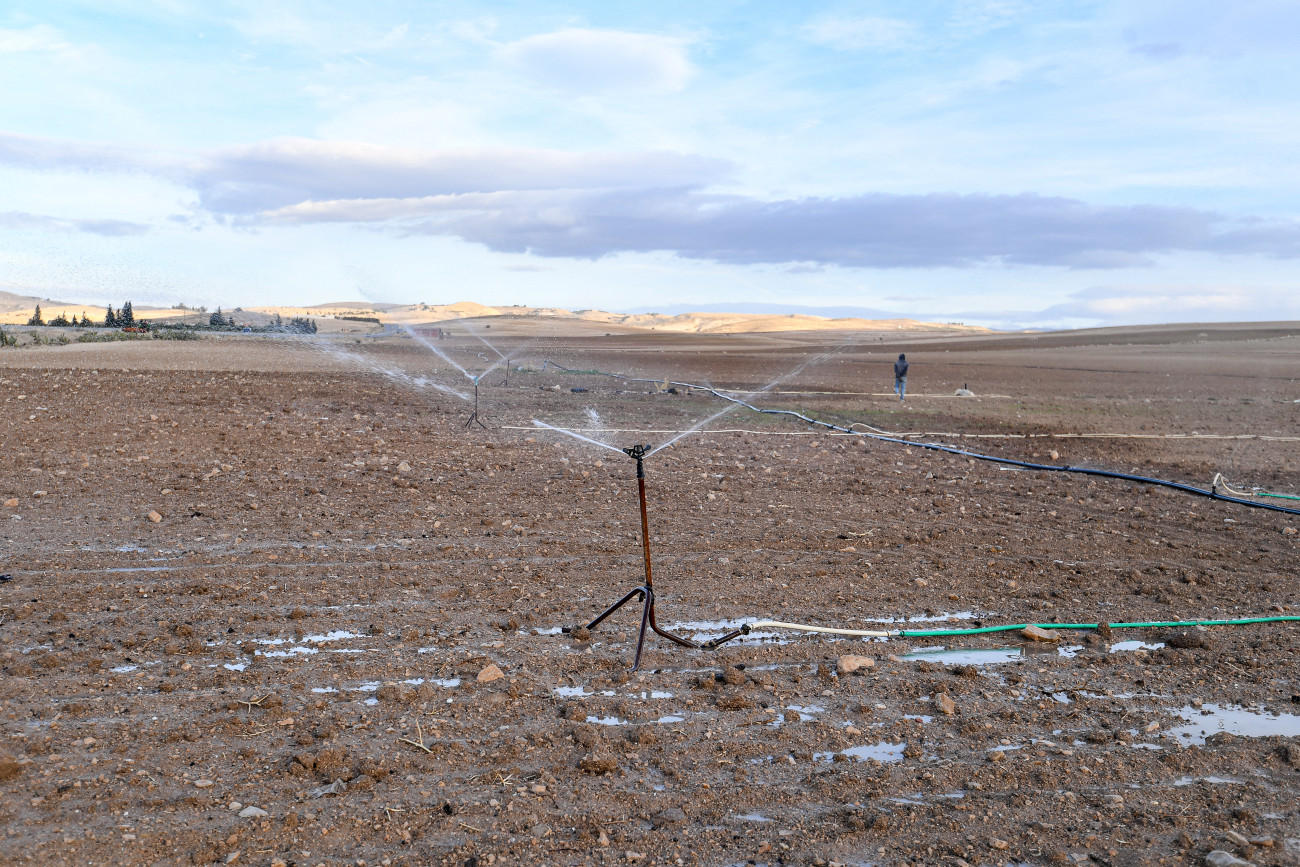
Managing Threats to Food Security: Water and Agricultural Resilience in North Africa
North Africa’s food security is under growing strain from climate change, water scarcity, and limited arable land. This report explores how governments and communities are adapting through climate-resilient farming, sustainable land management, and smarter irrigation. Strengthening water governance and diversifying agriculture, it argues, are key to safeguarding the region’s food future.
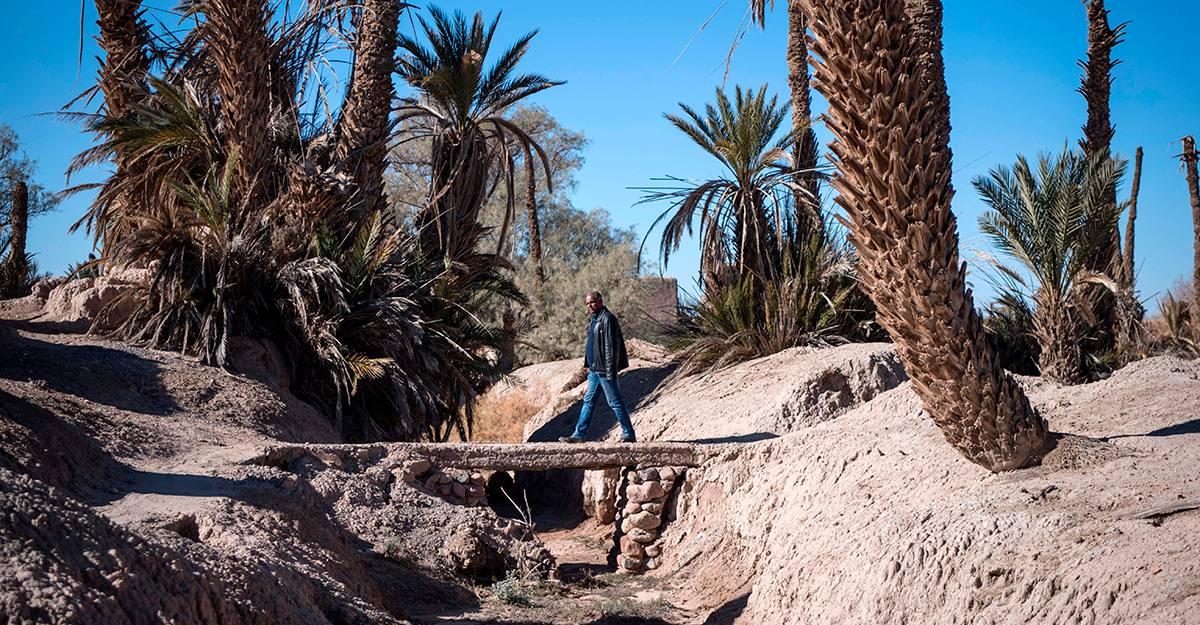
The Impact of Climate Variability on Morocco’s Agriculture
Morocco’s recent rainfall has offered a brief reprieve from years of drought — but the country’s food and water security remain at risk. This analysis examines how climate fluctuations are reshaping Morocco’s agricultural output, economic stability, and long-term water strategy, and argues for urgent investments in irrigation efficiency, desalination, and drought resilience.
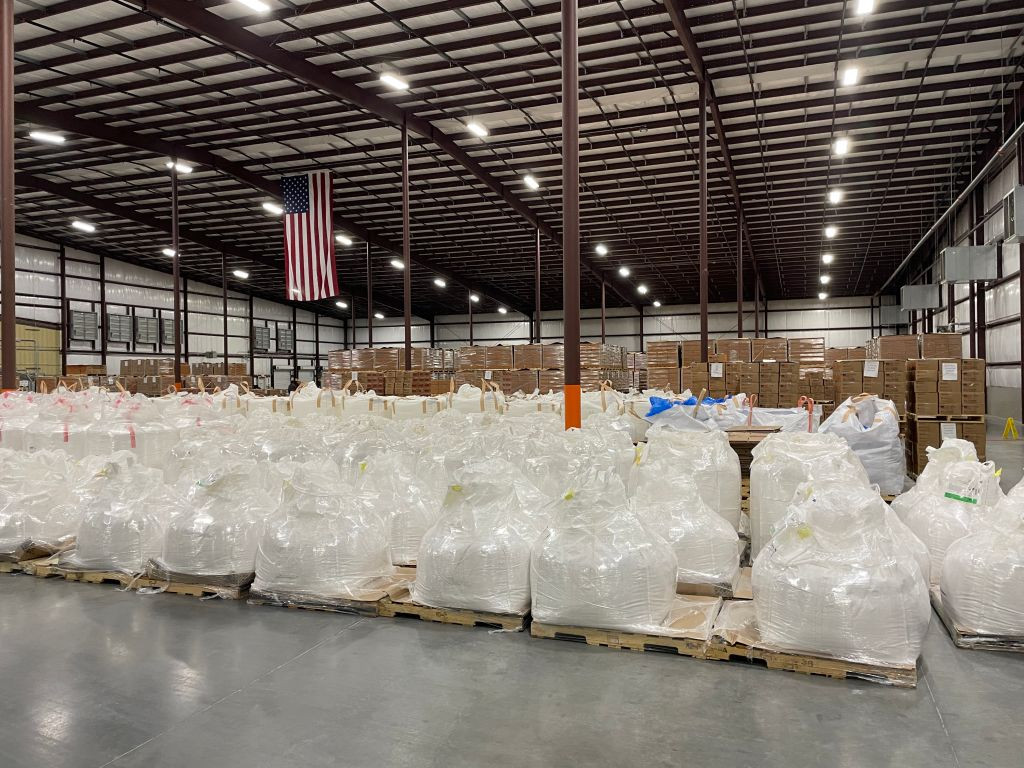
The Ripple Effects of U.S. Foreign Aid Cuts to Food and Water Access Across North Africa
The suspension of U.S. foreign aid in early 2025 has sent shockwaves through North Africa, jeopardizing programs that provide food, clean water, and agricultural support. This article traces the immediate humanitarian fallout — from halted school nutrition projects to shuttered emergency kitchens — and examines how the loss of aid threatens both regional stability and long-term U.S. strategic interests.










